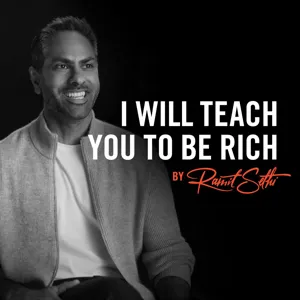Podcast Summary
Managing Risk through Diversification: Diversification spreads risk by buying uncorrelated assets, but perfect diversification is a myth due to market correlations. Accepting systematic risk can potentially lead to higher long-term returns.
Diversification is a crucial aspect of investing to manage risk while maintaining similar returns. It involves buying uncorrelated assets, ideally from various categories, to spread risk. However, perfect diversification is a myth due to increasing correlations between different markets. The capital asset pricing model (CAPM) suggests that there's no reward for diversifiable risks, meaning risks that can be eliminated through diversification. Instead, accepting systematic risk, or market risk, is the only way to potentially achieve higher long-term returns.
No investment strategy guarantees market outperformance: Diversification is crucial for managing risk and acknowledging that no single investment is permanently superior
There's no guaranteed investment strategy that will consistently outperform the market for everyone. As Ben Felix and Cameron Passmore explained on their podcast, Rational Reminder, strategies like factor investing that aim to do so rely on arbitrage opportunities that would disappear if everyone did it. Using the example of rental property investing, the 2% rule that once existed has been replaced by the 0.5% rule, as arbitrage opportunities have been snapped up. Believing that any one investment category is permanently better than others goes against the principles of capitalism and the constantly shifting forces of supply and demand. A visual representation of this can be found in Callan's periodic table of investment returns, which shows that no single category has consistently dominated over the past 20 years. Diversification is key to managing risk and embracing the economic and philosophical truth that no one investment is permanently superior.
Different asset classes have taken turns as top performers: Over the past 20 years, no single asset class consistently outperformed others. Diversification across various asset classes can help mitigate losses and ensure a stable retirement income.
No single asset class, including the popular S&P 500, has dominated the market in terms of top returns over the past 20 years. While the S&P 500 had the highest returns in only 15% of those years, other asset classes such as small cap equities, international equities, and even cash had their moments of outperformance. For instance, small cap equities had the highest returns in 2010, 2013, and 2020, while international equities had positive returns in 14 of the last 20 years with double-digit returns in 11 of those years. Cash, in the form of a 90-day T-bill, was the top performer in 2018. Diversification across different asset classes can help mitigate losses during market downturns and preserve the starting principal balance, ensuring a more stable retirement income.
The power of diversification in long-term investment portfolios: Diversified portfolios with bonds and equities outperformed other portfolios over 22 years, almost doubling in value while supporting a 4% safe withdrawal rate. Index funds and ETFs are recommended investment vehicles for retail investors due to their instant pricing and strong performance.
A diversified portfolio, specifically one with a mix of bonds and equities across different categories, outperformed other portfolios, including a 75% S&P 500 bonds portfolio and a 50% stocks and 50% bonds portfolio, over a 22-year period. The diversified portfolio almost doubled in value despite supporting a 4% safe withdrawal rate every year. The advantage of diversification was particularly notable during market downturns. As for investment vehicles, the discussion suggested that index funds and ETFs are a good choice for retail investors due to their ability to price in information nearly instantaneously and their strong performance over the last 20 years. Active mutual funds, on the other hand, may not offer the same advantage in today's environment. In summary, diversification and the use of index funds and ETFs are key strategies for building a successful long-term investment portfolio.
Finding undervalued stocks and holding them until they reach fair value: Value investing involves identifying undervalued stocks, buying them, and holding them until they appreciate back to their intrinsic value, aiming for long-term growth and compounding returns.
Value investing is a strategy where you aim to buy stocks that are underpriced relative to their intrinsic value, intending to sell them once they reach their fair value. This concept, popularized by investors like Benjamin Graham and his famous protégé, Warren Buffett, involves finding undervalued securities and holding them until they appreciate back to their intrinsic value. Buffett, who was heavily influenced by Graham, started his career as a value investor but later evolved his strategy, incorporating elements of buy-and-hold investing, as influenced by Phil Fisher. The ultimate goal is to find a "wonderful business at a fair price" and hold it for the long term to benefit from compounding growth and other advantages. Charlie Munger, another influential figure in Buffett's life, encouraged him to focus on buying good businesses regardless of their price, which led to some of Berkshire Hathaway's most successful investments.
Potential for higher yields through individual stock investments: Investing in individual stocks can lead to higher yields compared to index funds, but it comes with risks and requires knowledge, interest, and time.
While investing in an index fund like the S&P 500 can provide consistent returns, there's potential for higher yields through individual stock investments, especially for those who are knowledgeable, interested, and willing to put in the necessary time and effort. However, it's essential to acknowledge that individual stock investing comes with risks and is not a guaranteed or risk-free endeavor. The discussion highlighted that over the long term, even a small increase in yield could lead to substantial differences in returns. For instance, a 10% return instead of 7% would result in approximately $500,000 more over 20 years. Buffett's advice to his heirs to invest in an index fund is likely based on the fact that many people don't have the time, interest, or expertise to successfully pick individual stocks. It's crucial to remember that every investment decision carries some level of risk, and investors should carefully consider their goals, risk tolerance, and available resources before making a choice.
Risks and limitations of investing in broad market indices: Consider a diversified approach with value investing and data analysis to mitigate risks in passive investing, as broad market indices are heavily influenced by large-cap companies and human behavior.
Investing in broad market indices like the S&P 500 comes with certain risks and limitations. The index is market-weighted, meaning it's heavily influenced by large-cap companies, particularly tech stocks, which can be more susceptible to interest rate hikes and valuation declines. Additionally, human behavior can impact the market, leading to panic selling and missed opportunities for buying undervalued stocks. To mitigate these risks, consider a diversified approach that includes value investing, focusing on undervalued companies, and following the "Moneyball" strategy, where you use data and analysis to build a high-performing portfolio. Ultimately, it's essential to understand the limitations of passive investing and consider a more active, informed approach to investing.
Focus on businesses within your circle of competence, identify companies with strong competitive advantages, great management, and undervalued prices.: To be a successful investor, focus on businesses you understand, look for companies with competitive advantages, evaluate management, and seek undervalued opportunities.
Successful investing involves focusing on businesses within your circle of competence, identifying companies with strong competitive advantages, great management, and undervalued prices. Buffett, a renowned investor, emphasizes understanding businesses you're familiar with and looking for those with a moat, or competitive advantage, to minimize disruptions. He also recommends evaluating management through their financial decisions, such as debt management, and seeking undervalued opportunities. For instance, Buffett's acquisition of See's Candy was successful due to its simple business model, which created a moat that was hard to replicate. Overall, successful investing requires a deep understanding of businesses, their competitive advantages, and the people running them, while maintaining a disciplined approach to valuation.
Branding and Perceived Value: Branding creates perceived value, allowing individuals to pay a premium for a product or service. In finance, higher-income earners can leverage this concept through the backdoor Roth IRA strategy to access Roth IRA benefits despite income limitations.
Building a strong brand can be a competitive advantage, especially in industries where perceived value plays a significant role. Using the example of See's Chocolates, the premium image of the brand creates a perceived value effect, making it a more desirable choice for consumers. In the world of personal finance, this concept applies to the backdoor Roth IRA strategy. Despite income limitations for contributing to a Roth IRA directly, individuals can still leverage this account type by opening a traditional IRA, making a non-deductible contribution, and then converting it to a Roth IRA. This strategy allows higher-income earners to take advantage of the tax benefits of a Roth IRA, even if they exceed the income limit for direct contributions. In both cases, the power of a strong brand or a strategic financial move can create value beyond the initial cost.
IRS pro rata rule affects Roth IRA conversions: Proper planning and professional guidance are essential when converting traditional IRA funds to a Roth IRA to minimize potential tax implications.
Converting traditional IRA funds to a Roth IRA can be a complex process, and attempting it without proper planning or professional guidance could result in a significant tax bill. Here's a simplified explanation: If you already have significant balances in traditional IRAs or other pretax retirement accounts, and you're trying to convert a portion of those funds to a Roth IRA, the IRS pro rata rule comes into play. This rule determines the taxable amount of your conversion based on the total amount of pretax dollars in all your traditional IRAs. For example, if you have $50,000 in traditional IRAs and want to convert $6,000, only 10% of the conversion would be tax-free, and the remaining 90% would be taxed again since you've already paid taxes on that money. To avoid this double taxation, it's crucial to consider your current retirement account balances and the potential tax implications before making a conversion. If you have minimal pretax funds outside of your 401(k)s, or if you're just starting to build your retirement savings, the tax hit from a conversion might not be a significant concern. However, if you have substantial balances in traditional IRAs, it's highly recommended to consult a tax professional or financial advisor before making a conversion.





